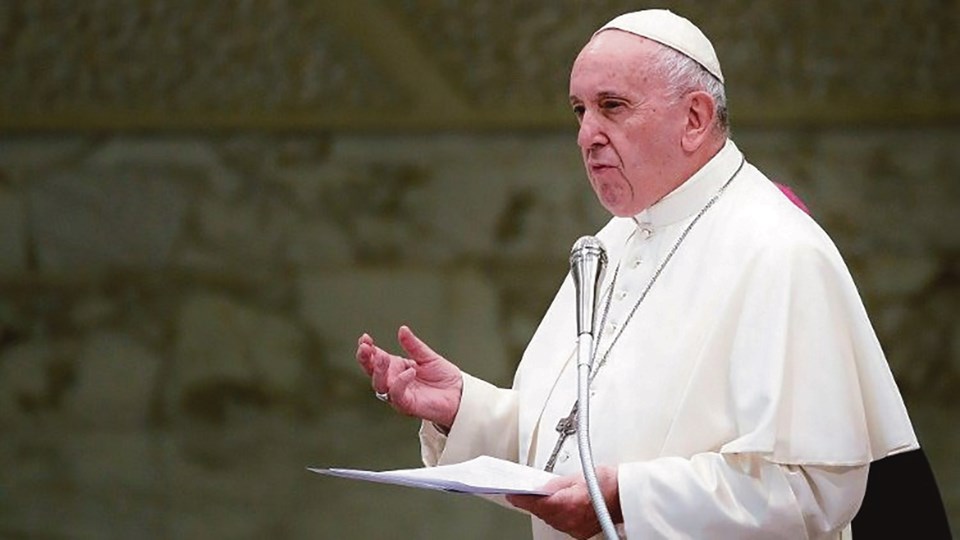BARRHEAD, Alta - Pope Francis will be visiting the Lac Ste. Anne's annual pilgrimage site near Alberta Beach when he comes to Canada next month.
For more than 100 years, people have been participating in the annual pilgrimage to Lac Ste. Anne during the Feast of St. Anne. Upwards of 45,000 people visit the site to bath in the Lac Ste. Anne waters.
The theme of the weeklong visit is "walking together" and will include public and private events in three Candian locations, Edmonton, Quebec City and Iqaluit.
The tour will begin in Edmonton with a short ceremony at the airport on July 24.
The next day, Francis will visit Maskwacis to tour Ermineskin, a former residential school. While at Ermineskin, he is expected to meet with residential school survivors.
Later the same day, Francis will visit Sacred Heart Church of the First Peoples, an Indigenous church in downtown Edmonton.
On July 26, following an open-air mass at Edmonton's Commonwealth Stadium. Later that day, he will visit the Lac Ste. Anne pilgrimage site.
During his visit, Francis is expected to deliver an apology for the Roman Catholic Church's role in residential schools during the trip, building on sentiments he expressed at the Vatican during a March visit by a delegation of Canadian Indigenous, which included several residential school survivors.
Edmonton Archbishop Richard Smith, who is helping organize the Canadian tour said the pope's visit shows how important the trip is to him. He noted that the Vatican recently postponed or cancelled several of Francis' upcoming trips.
"In the midst of all that, we have confirmation that he is coming, so clearly he is determined to come here," Smith said. "The pope's visit will be an important step in the ongoing journey of healing and reconciliation between the church and Indigenous peoples."
He added that he was "convinced that the holy father in wonderful ways would be able to further the healing and reconciliation process for all Canadians."
Gilda Soosay, a member of Samson Cree Nation, who joined the media conference from Maskwacis, was optimistic the pope's visit would help the wounds residential schools caused to not only direct survivors but generations afterwards.
"Once the people of Maskwacis start telling their stories, the truth will come out, and healing will begin," she said.
Fernie Marty, an elder who serves and worships at Sacred Heart Church who is also a residential school survivor, said he was excited and nervous about meeting Pope Francis.
"We have a unique history happening here. It's important for my own personal healing to continue," said Marty.
Father Garry LaBoucane, the spiritual director of the Lac Ste. Anne pilgrimage said he was excited about Francis' visit.
"Somebody told me he is coming as a pilgrim, and I think that is a perfect image because, for more than 100 years, people have made many sacrifices to make their way to Lac Ste. Anne for healing," he said. "The church is also a pilgrim church, and the holy father leads us in healing and reconciliation, and people are really looking forward to being and praying with him."
During the question period, several media representatives asked for more details about what Francis would say as part of his expected apology to residential school survivors. More specifically, an apology for the role the church played.
"We will all have to wait to find out his final words, but I expect he will be speaking with the awareness he is talking to all Indigenous peoples and that he is speaking on behalf of the church," Smith said.



